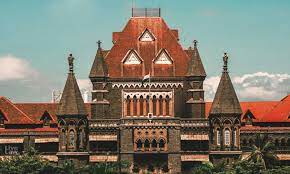Mere scolding does not provoke a reasonable man to kill- Bombay High Court convicts priest son of father's murder

The Bombay High Court in a recent decision convicted a son of murdering his father and held that "mere scolding does not provoke a reasonable man to kill".
Deceased Nanasaheb was the father of appellant-accused, Netaji Tele. Tele was working as priest at Kolhapur and Shirdi. One night, Tele's father scolded him for not doing any serious work. In the course of the argument, Tele slapped his father and when his father questioned his behavior, he removed a knife and stabbed the father, killing him on the spot. The trial court had convicted Netaji and sentenced him to life in prison.
Netaji submitted that the incident had taken place without any premeditation in the heat of passion on account of grave and sudden provocation. As per Netaji, deceased Nanasaheb told Netaji that he was not doing anything and further directed him not to come in the house because of which Netaji acted with grave and sudden provocation. He submitted the same is not murder and it amounts to culpable homicide.
However, the Bench of Justice Sandipkumar C. and Justice V. K. Jadhav rejected Netaji's contentions and upheld the decision of the lower court. The Court observed that,
"Even assuming that father has scolded his son appellant-accused in the manner which provoked the appellant-accused to react on it, however, we are unable to pursue ourselves that such provocation is grave. No reasonable man is likely to loose self control as a result of such provocation from the father."
The Court relied on Budhimanta Naik vs. State of Orissa where the Orissa High Court had held that filthy language can lead to grave and sudden provocation, however, in the case at hand there was no use of filthy language by the father.
"In the instant case, the appellant-accused is guilty of offence punishable under Section 302 of I.P.C.. The appellant-accused had intention to kill his father. He had kept weapon knife hidden near his abdomen. The appellant-accused is admittedly doing the work of priest. We find no reason for the appellant-accused to carry the weapon knife for visiting his own house. Thus, the ratio laid down in the above cited case cannot be made applicable to the facts and circumstances of the present case, in any manner," the Court concluded.
Netaji Nanasaheb Tele v. State of Maharashtra
